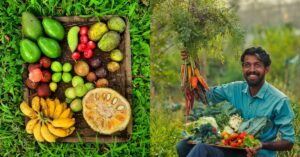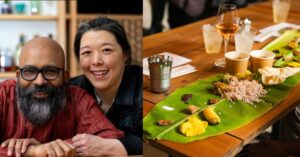Kerala Startup Makes Water-Resistant Leather Alternative Out of Coconut Water!
This wonder product by Malai Biomaterials Design Pvt Ltd, a PETA-approved company, takes only 90-150 days to decompose!
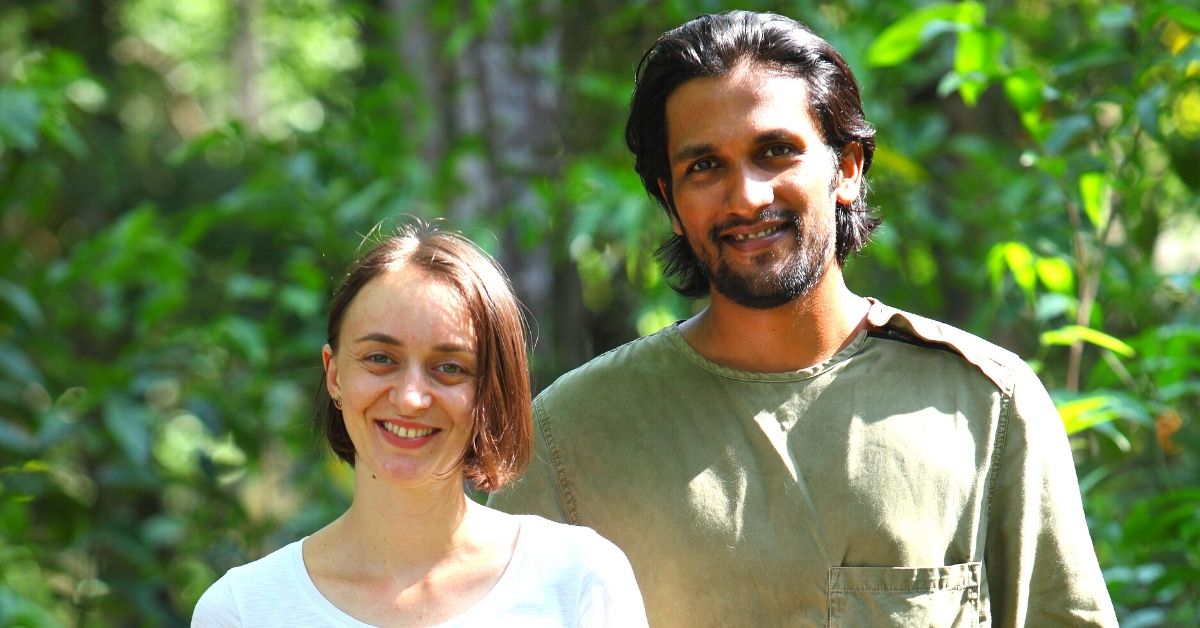
With The Positive Collective, The Better India’s COVID-19 coverage is available to regional language publications for free. Write to [email protected] for more details.
Most of us are aware of the benefits of coconut for skin, body, and health. The fragrant drupe (a fruit with an inner flesh and a seed surrounded by a hard shell) has healing properties, provides nutrition and quenches thirst.
But did you know that coconut water has the potential to protect animals and can be a substitute for leather?
Yes. Your read that right! A Kerala-based company, Malai Biomaterials Design Pvt Ltd, is producing a bio-composite material from coconut water that has the look and feel of leather.
“This flexible biocomposite material has a circular life cycle. We use raw materials like waste coconut, banana stem, sisal fibre and hemp fibre that do not require any use of energy or chemicals. The final product is biodegradable that can decompose within 150 days. Our product is vegan and environment-friendly,” Zuzana Gombosova, co-founder of the company, tells The Better India (TBI). 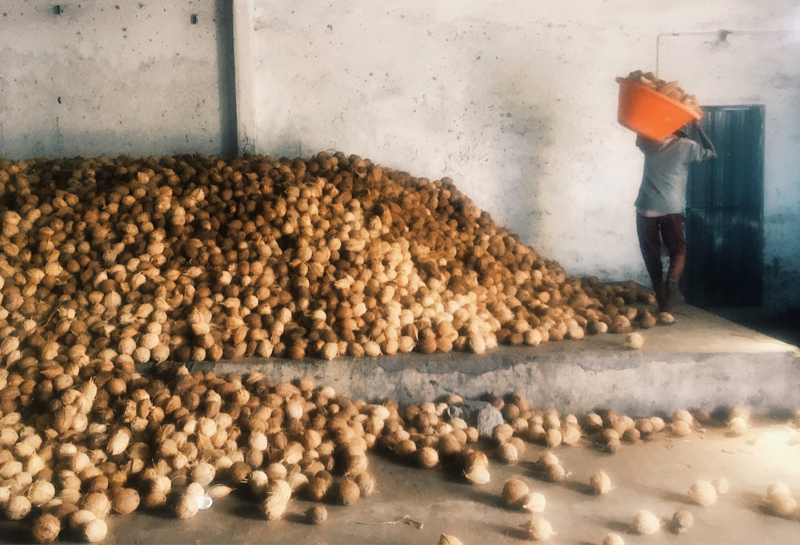
Zuzana is a designer from Slovakia based in India, who developed the material along with Susmith C Suseelan, an engineer from Kerala. A shared passion for the fashion industry and deep-rooted concern for the environment drove the duo toward investing almost a year to perfect the product and launch the company.
At present, the company’s major clients are based across Europe and the US. They are supplying their product to prestigious companies like Crafting Plastics, TON, Ma-tt-er, Kazeto which is then changed to utility sling bags, tote bags, laptop bags, belted bags, wallets, mini backpacks and more.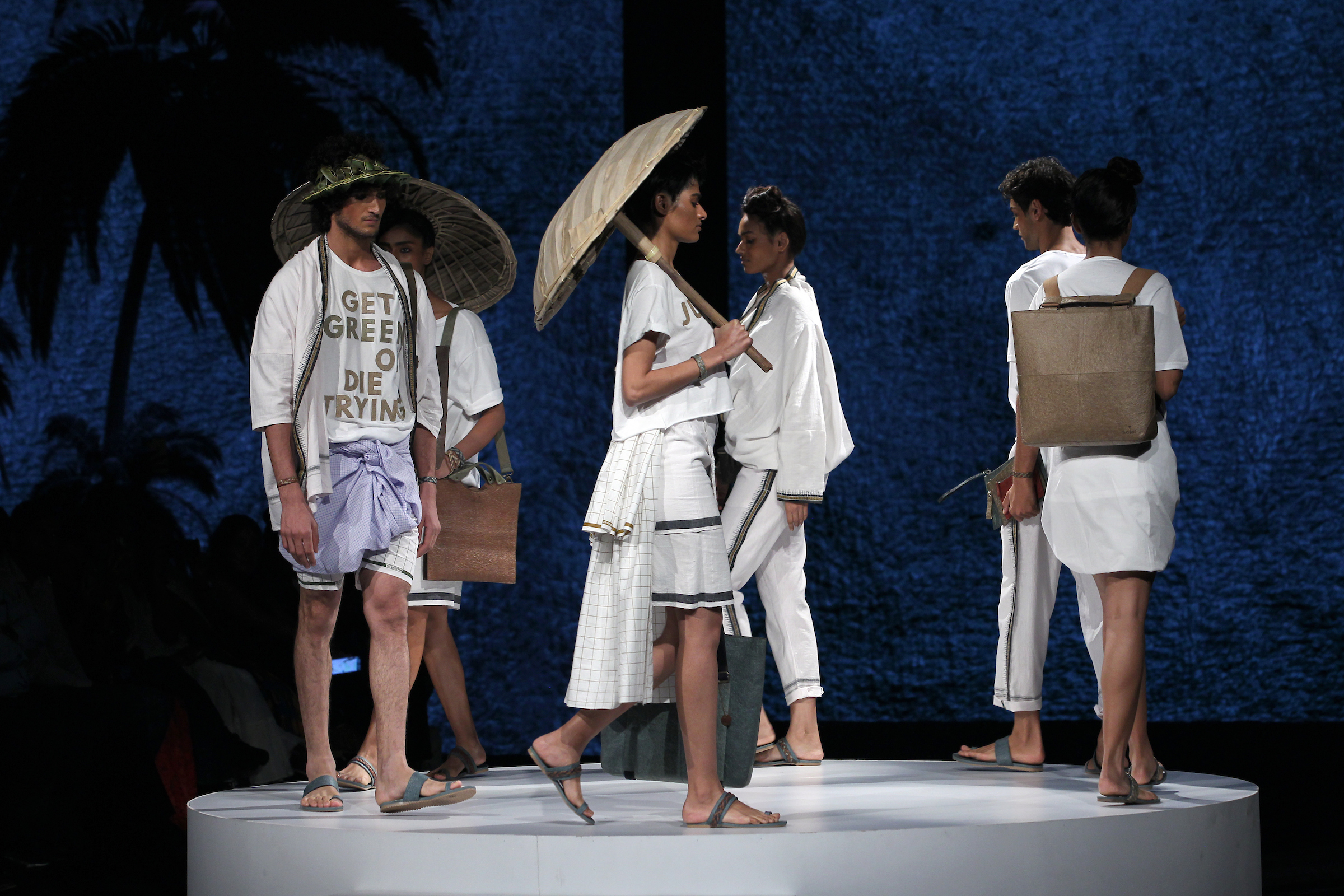
Besides building a strong base with the clients, their sustainable product also made it to the London Design Week and the Prague Design Week in 2018.
They Began by Pooling their Personal Savings
Zuzana learnt about bacterial cellulose during her Master’s from University of Arts, London in 2013. Her thesis revolved around microbially grown materials through the fermentation process.
“I studied how bacteria grown in the coconut is being used in the food industry in the Philippines and the fashion industry in very few places. However, due to the lack of availability of coconuts in London, I was unable to experiment in detail. The idea stayed with me,” she says.
After her Master’s, Zuzana went on to work in London and Istanbul before landing a job in Mumbai as a designer. Here she met Susmith who had joined the company after completing his Mechanical Engineering and Product Designing from Indian Institute of Science, Bengaluru.
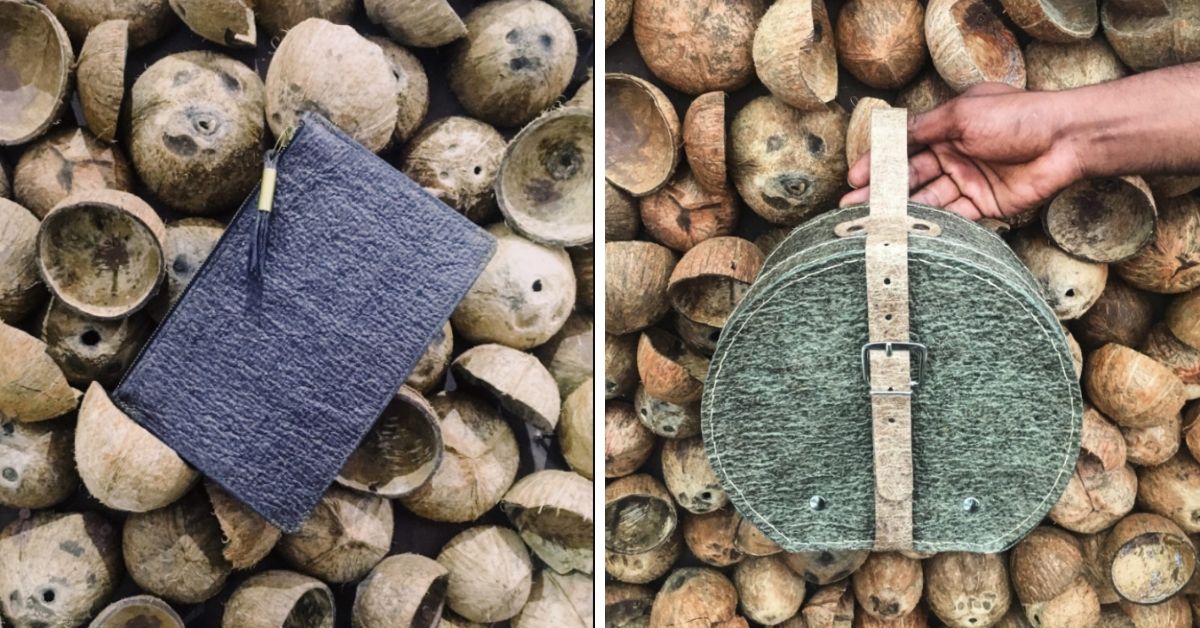
Zuzana told Susmith about the potential of bacterial cellulose found in coconut water. Once the duo understood that they had a shared passion for sustainability, they quit their jobs and moved to Channapatna, a city in Karnataka’s Ramanagara District for a year-long research and development phase, funded by their personal savings. They also collaborated with Karnataka manufacturing unit that was already working on a similar fermentation process.
After a series of mistakes and failures, their experiment finally took shape, and the first sample (one square metre in length) was ready within six months.
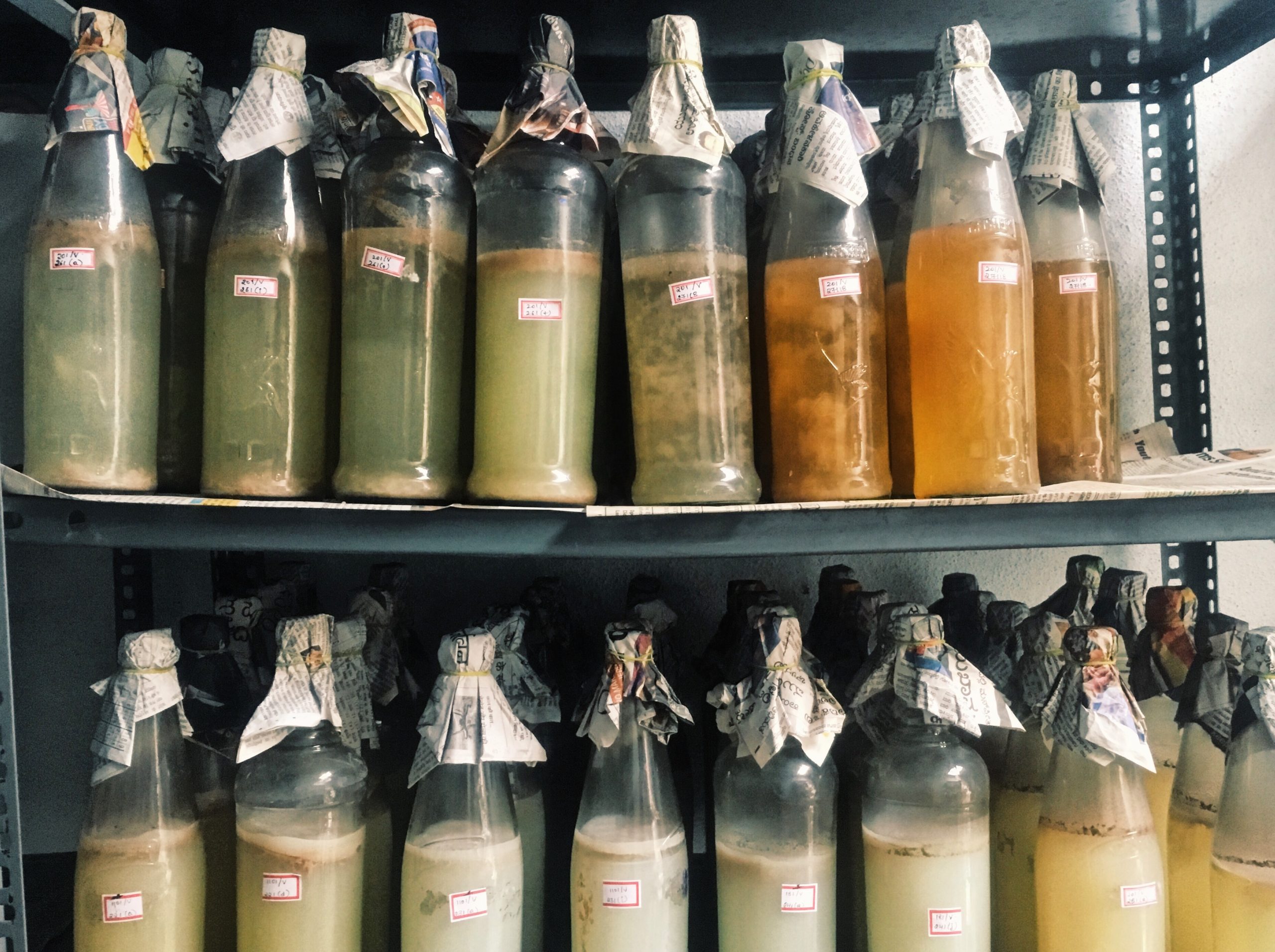
For the next six months, the duo worked incessantly to make their product as sturdy as leather. The durability, wear and tear resistance of the product was tested at the German company, TUV – based in Chennai which specialises in product testings.
“A TUV certification validates that sample product has been tested for safety and meets the minimum requirements of the German Equipment and Product Safety Act. As per certification, the product is fairly good in comparison to leather. It is stretchy and has the same thickness as leather,” says Zuzana.
In 2018, they formally launched their bootstrapped company.
Processing the Product
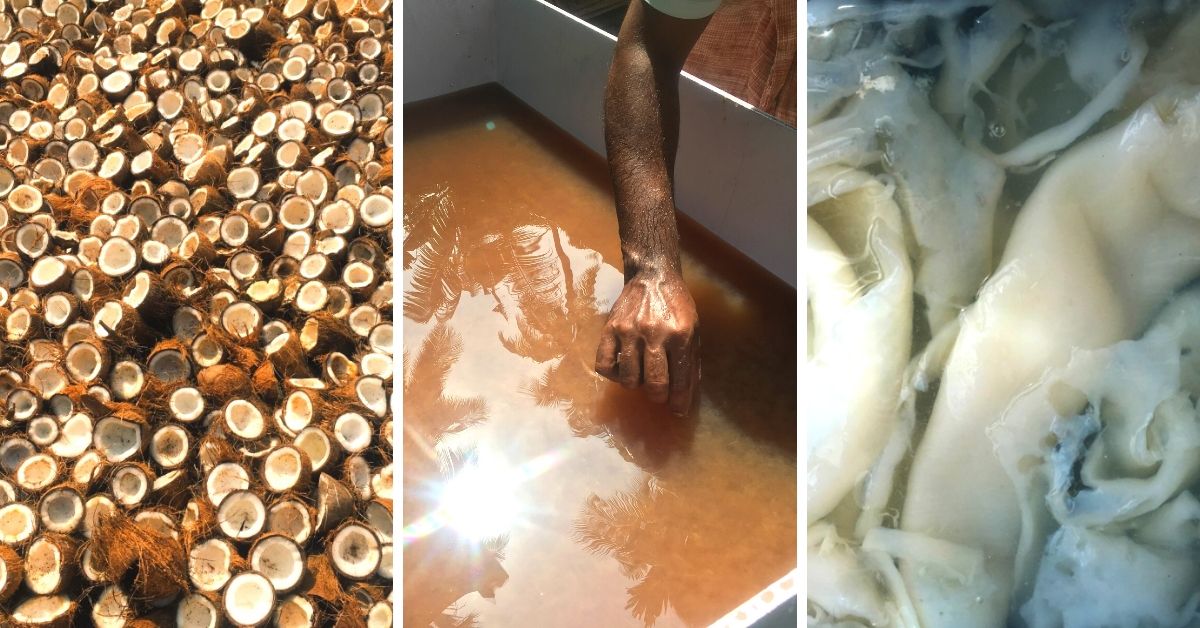
The company collects coconuts from farmers in Kerala, and then tap the water, sterilise it and leave it undisturbed for bacterial culture to feed on. The end process results in jelly-like cellulose which is mixed with banana fibre or gum to create the raw material in the form of sheets or 3-dimensional shapes. To make the sheets colourful and glossy, the company uses natural dyes such as indigo, madder or cutch.
What’s the best part? There are no aggressive chemicals used in the entire process.
“The fermentation period takes between 12-14 days, at the end of which a sheet of cellulose ‘jelly’ is produced. The bacterial cellulose has a dense web of nano-fibres of cellulose. It grows in its pure form, and therefore no chemicals need to be used to extract it as in case of plant-based cellulose,” she adds.
In the final stage, the sheets are air-dried and softened with gentle water-resistant treatment. The sheets are cast in different textures like semi-glossy, glossy or matte through oil or water-based coatings and then crafted into a range of products.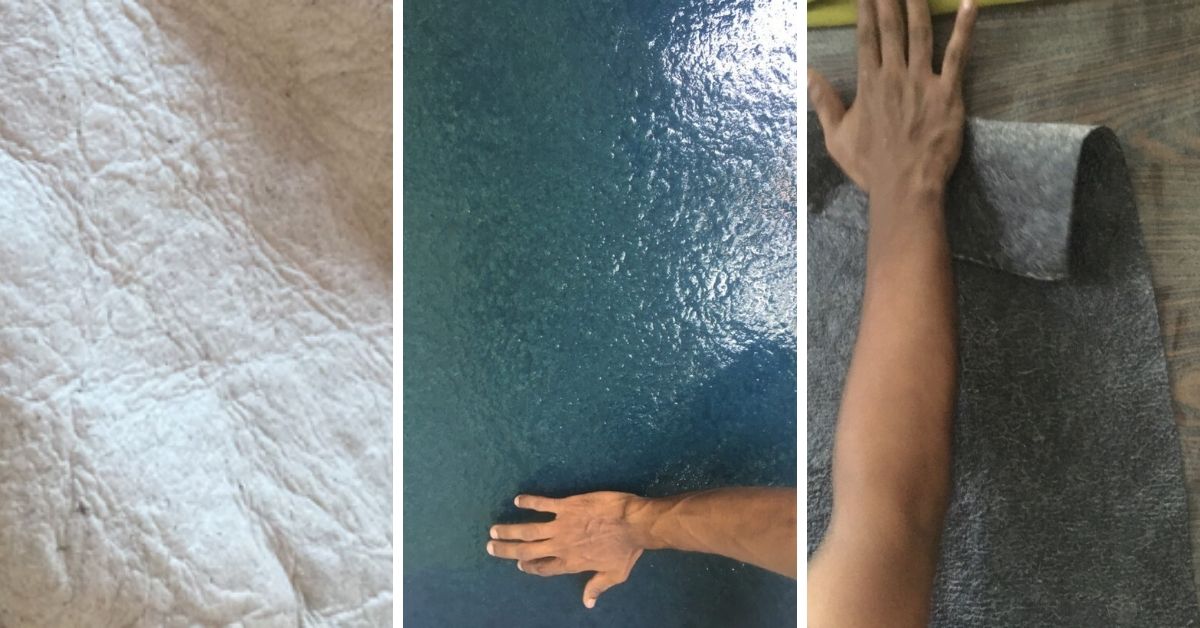
As for the cost, it is a bit higher than the market rates of similar products. Zuzana explains the reason behind it, “Many would say it has a premium price, mostly because the price of its substitute is cheap due to easy access. It is nearly impossible to compete with them. As a small manufacturer, our supply chain is very uncommon. That’s why most of our clients are based out of India. However, we plan to make it more affordable in future.”
Malai’s processing unit on the outskirts of Kochi has a monthly capacity to produce 200 square metres of the material in the form of a sheet or 3-dimensional shapes.
Plans to Launch the Product in Indian Markets
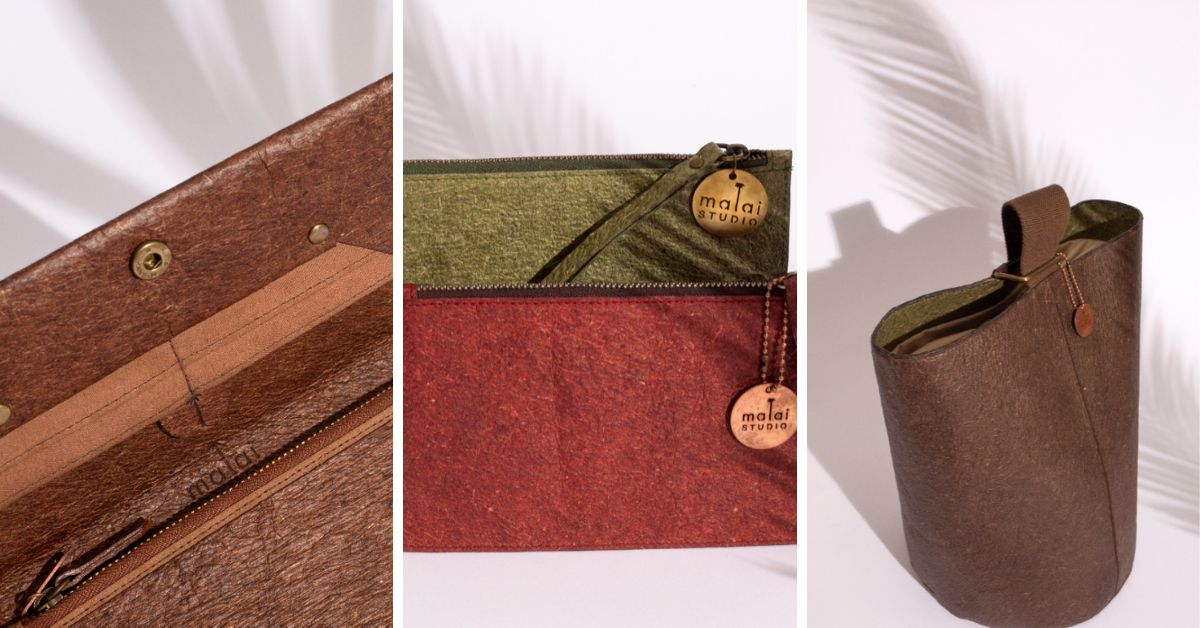
Recently, the PETA-approved company clinched the winning title at Circular Design Challenge at Lakmé Fashion Week summer/resort 2020. Also, this year the duo had planned to make Malai more accessible in the Indian market by joining hands with a research team from IIT-Hyderabad. However, owing to the current COVID-19 situation and lockdown, their processing unit has halted its production.
“The production is stopped, but our minds are running to design a product that is superior to leather. We want to enter different domains like furniture, interior designing in future,” Zuzana says.
Zuzana and Susmith are rare, responsible and conscious designers who are continually coming up with innovative ideas to offer sustainable choices to consumers that could be a game-changer in future.
All images are sourced from Zuzana
Get in touch with Malai Biomaterials here
(Edited by Saiqua Sultan)
Like this story? Or have something to share?
Write to us: [email protected]
Connect with us on Facebook and Twitter.
This story made me
- 97
- 121
- 89
- 167
Tell Us More
We bring stories straight from the heart of India, to inspire millions and create a wave of impact. Our positive movement is growing bigger everyday, and we would love for you to join it.
Please contribute whatever you can, every little penny helps our team in bringing you more stories that support dreams and spread hope.






